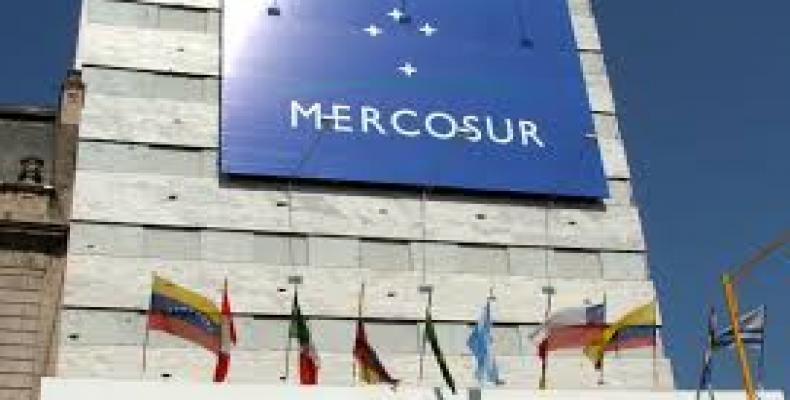Caracas, August 7 (RHC)-- Foreign Ministers of the Common Market of the South, MERCOSUR, have decided to apply the “democratic clause” established by the group’s Protocol of Ushuaia, suspending Venezuela from the regional bloc. The bloc claimed that the administration of President Nicolas Maduro was suspended for “breaking the democratic order” after it moved forward with its National Constituent Assembly. The announcement was made during a meeting in Sao Paolo, Brazil to discuss political turmoil between the Venezuelan government and the right-wing opposition.
At the meeting held over the weekend, Brazilian Foreign Minister Aloysio Nunes said political suspension does not imply neither expulsion nor the application of economic sanctions, since they are not included in the Protocol of Ushuaia.
Following the announcement, Maduro vowed to fight the decision. “No one will remove us from MERCOSUR,” Maduro said during an interview with Argentina’s Radio Rebelde. Caracas believes the suspension process is full of “arbitrariness and prejudice” against its right to sovereignty and self-determination.
Following the announcement, Maduro vowed to fight the decision. “No one will remove us from MERCOSUR,” Maduro said during an interview with Argentina’s Radio Rebelde. He said that the suspension process is “arbitrary and prejudiced” against Venezuela's right to sovereignty and self-determination.
The decision comes almost three weeks after MERCOSUR held a summit in Mendoza, Argentina, which Caracas deemed “illegal” and did not attend. Commenting on the “illegal” July 21 meeting where suspensions threats were initially made, Venezuela said “the ongoing reckless use of a body for integration as a means of political hostility against the government and people of Venezuela is alarming.”
Despite MERCOSUR issuing a statement at that meeting calling on both the government and the opposition to "not take any initiative that could divide Venezuelan society even more,” the bloc decided to move forward with suspension.
The statement was signed by the presidents of four full members, Argentina, Brazil, Paraguay and Uruguay, as well as associate members, Chile, Colombia and Guyana, along with Mexico, which was attending the summit as a guest.
MERCOSUR Suspends Venezuela, Maduro Vows to Fight Decision


